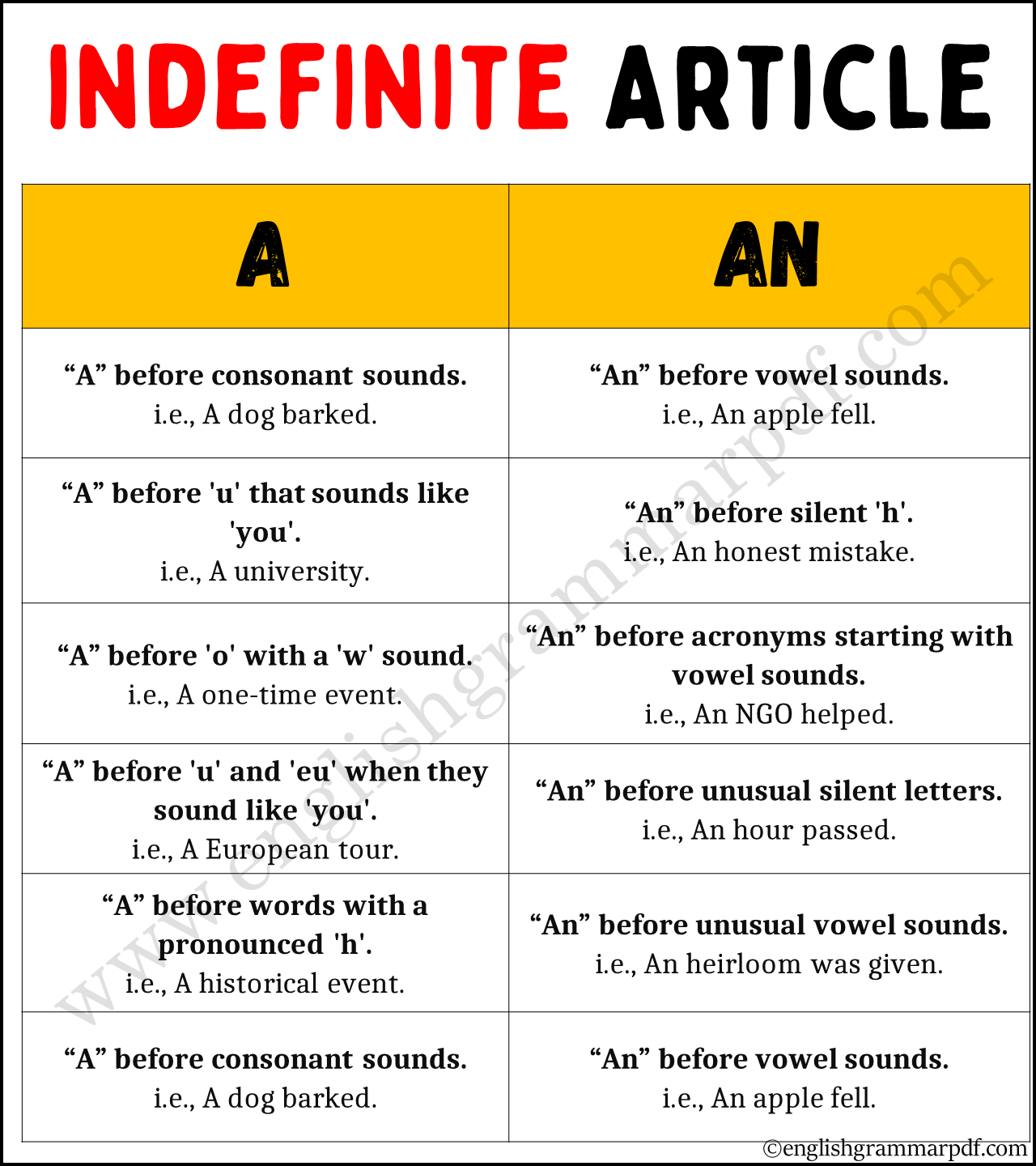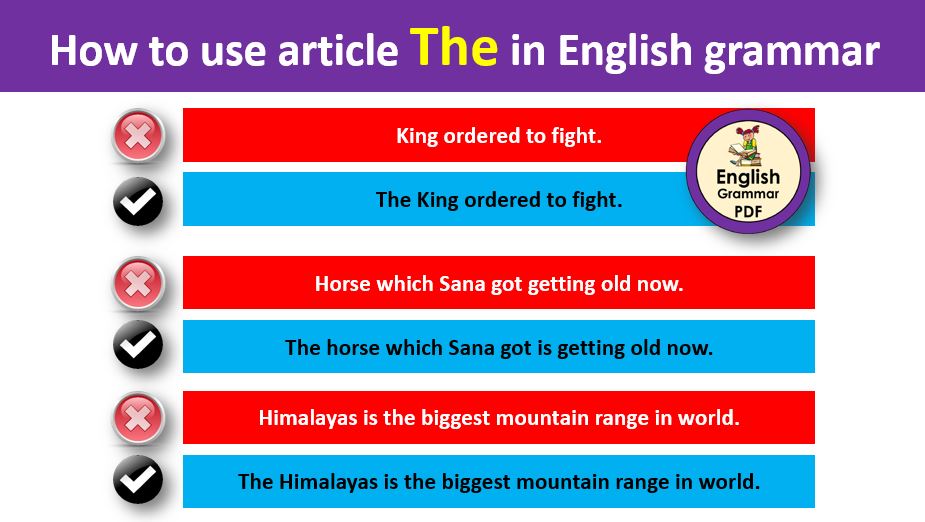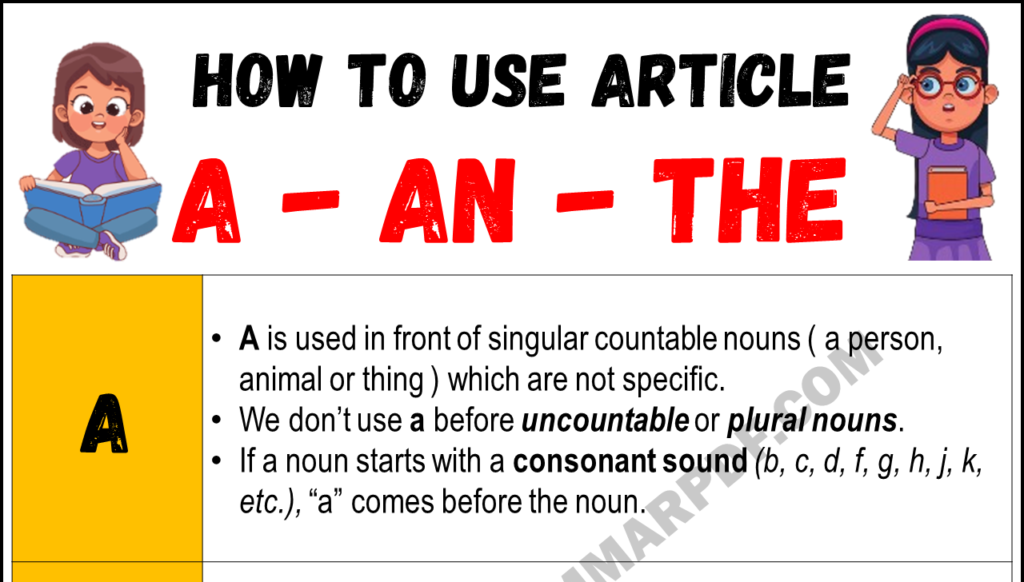Navigating the English language’s subtleties can be a daunting task, especially when it comes to the correct use of indefinite articles “a” and “an.” These small words play a crucial role in the structure of sentences, ensuring grammatical accuracy and enhancing readability. This blog post will explore every case for using “a” and “an,” providing clear examples to illustrate their proper use.
Understanding the Basics
The indefinite articles “a” and “an” are used to refer to nonspecific objects or things. The choice between “a” and “an” primarily depends on the sound that follows them.
- “A” is used before words that begin with a consonant sound.
- “An” is used before words that begin with a vowel sound.
When to Use “A”
- Consonant Sounds:
- Example: A dog barked loudly last night.
- Explanation: “Dog” starts with a consonant sound [d].
- U-Sounds That Sound Like ‘You’:
- Example: He is a university professor.
- Explanation: “University” starts with a [juː] sound, which is a consonant sound, despite beginning with the vowel letter ‘u’.
- Words Starting with ‘W’:
- Example: She bought a one-way ticket.
- Explanation: “One” starts with a [w] sound, which is treated as a consonant.
When to Use “An”
- Vowel Sounds:
- Example: She adopted an elephant from the sanctuary.
- Explanation: “Elephant” starts with [e], a vowel sound.
- Silent ‘H’:
- Example: It was an honorable mention at the ceremony.
- Explanation: “Honorable” starts with a silent ‘h’, making the first sound [ɒ], a vowel sound.
- Acronyms Starting with Vowel Sounds:
- Example: He works for an NGO.
- Explanation: “NGO” is pronounced [ˌɛnˌdʒiːˈoʊ], starting with a vowel sound.
Special Cases
- Historical and Ancestral Use:
- Example: He has an historical artifact.
- Explanation: Some traditionally use “an” before words like “historical,” where the ‘h’ might be less pronounced, though modern usage typically prefers “a.”
- Usage with Numbers:
- Example: I’ll be there in a hundred years.
- Example for “An”: It happened in an hour.
- Explanation: “Hundred” begins with a consonant sound, while “hour” starts with a silent ‘h’, making the first sound a vowel.
Common Mistakes and How to Avoid Them
- Misidentifying the Following Sound:
- Incorrect: A apple was on the table.
- Correct: An apple was on the table.
- Tip: Always consider the sound, not just the letter.
- Ignoring Pronunciation Changes:
- Incorrect: He bought a unique item.
- Correct: He bought an unique item.
- Tip: “Unique” starts with a [juː] consonant sound, thus “a” is correct.

Conclusion
Understanding when to use “a” and “an” is essential for mastering English grammar. By paying attention to the sounds that follow these articles and practicing with the examples provided, you can ensure that your usage is both grammatically correct and fluent. Remember, it’s the sound, not the first letter, that dictates the correct article. Happy writing!


